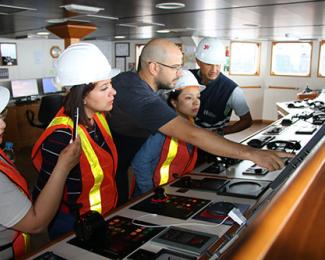Painting Her Way to a Brighter Future
Today my life is amazing, I am the contractor, hiring others to work for me! This training turned out to be the gateway to live a dignified life.
Pushpa Lohar, from Kanchanpur, Nepal participated in a 52-day house painting training, provided by the Rastriya Haliya Mukthi Samaj and supported by the the U.S. Department of Labor–funded Bridge Project.
“I never imagined that I would one day become a house painter,” she said.
Before the training, Pushpa was working as a daily wage laborer, like many women in her community, working hard to break stones into fine pebbles. They were forced to do whatever they were told to, without complaining and for little pay.
She enrolled in the training with other women from her village. During the training, they learned how to paint houses. All of the participants who completed the training are currently employed.
Pushpa decided to recruit some of the other female participants from the training and created a house painting business. She committed to treat her employees with respect and to pay them decently. And she already received positive feedback from her clients.
“Today my life is amazing, I am the contractor, hiring others to work for me! This training turned out to be the gateway to live a dignified life,” she said.
Her living conditions have improved. She was able to repay the loan of $838 she took before the training to buy a piece of land, thanks to the income from her house painting business. She can now send her daughter to a private school and still manages to save up to $14 every month. She also has bigger plans for the future, like opening a paint shop with her husband to increase their income.
Despite working in a sector that was traditionally reserved for men, her family supports her.
“My husband supports my decision, encourages my work and also helps with the household chores while I am at work,” she says.
With the other women beneficiaries, they have started to overcome gender stereotypes. After seeing their working style and dedication, the villagers now believe in their ability as women to paint houses. They also became a source of encouragement for other women in the village.
“Seeing myself as a role model to other women makes me proud and happy,” said Pupsha.
Learn more about the Bridge project’s work to eliminate traditional and state-imposed forced labor systems and to significantly reduce contemporary forms of forced labor.





















